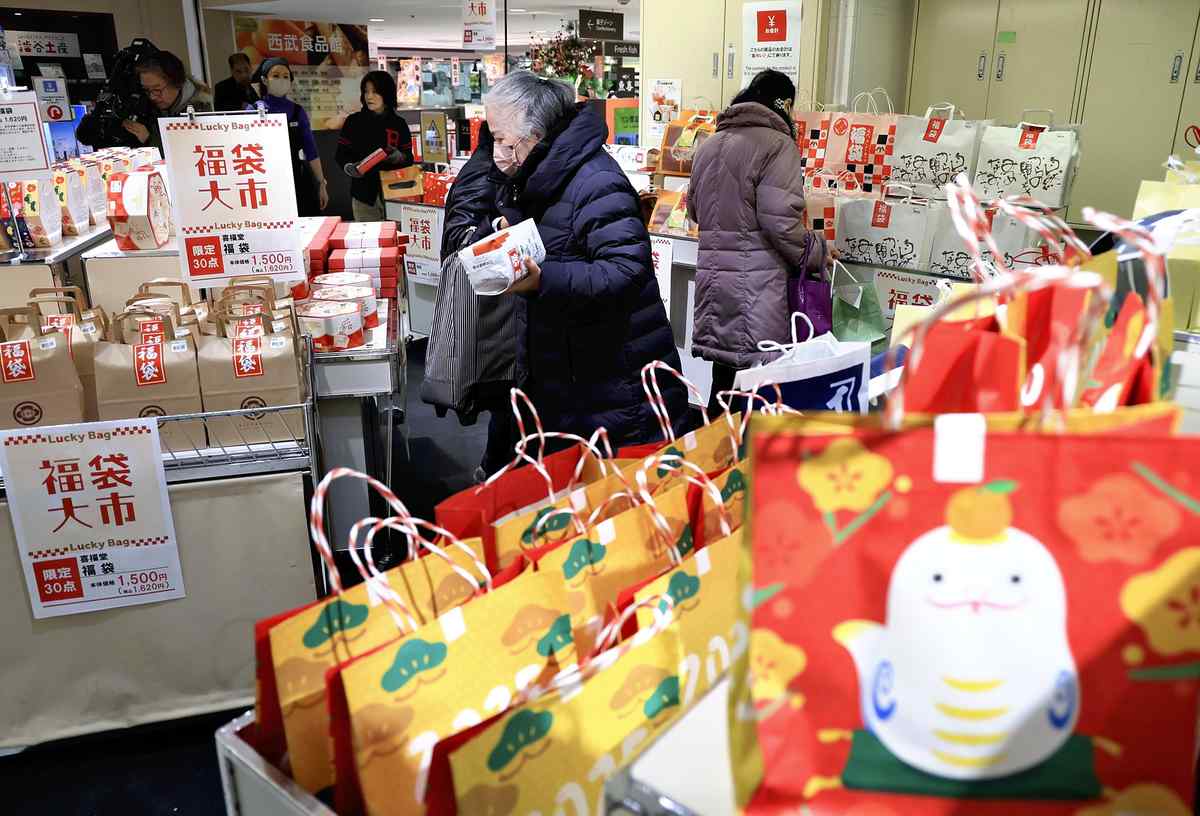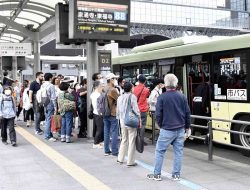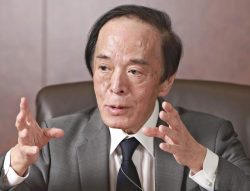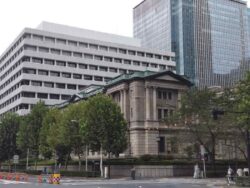Yomiuri Survey Finds 9 Of 30 Companies Positive On Ishiba Economic Policies; 15 Take Neutral Position, Citing Vagueness, Fear Of Falling Consumption

Shoppers select fukubukuro lucky bags filled with groceries at a department store in Shibuya Ward, Tokyo, on Thursday.
15:04 JST, January 3, 2025
In a recent economic sentiment survey conducted by The Yomiuri Shimbun with 30 major companies, only nine respondents expressed a positive evaluation of Ishiba’s economic policies, while 15 said they were neutral.
The administration of Japanese Prime Minister Shigeru Ishiba, inaugurated in October last year, has continued the policy of creating a virtuous cycle of growth and distribution advocated by the previous Fumio Kishida administration. It aims to revitalize Japan’s economy through measures such as raising the nationwide average minimum wage to ¥1,500 within the 2020s.
By contrast, in a 2022 survey regarding the economic policies of the Kishida administration, which began in October 2021, 16 respondents expressed approval.
Those who responded neutrally in the current survey cited reasons including: “I understand the importance of wage increases, but if small and medium-sized businesses cannot afford them, it could lead to falling consumption and regional decline” (Food sector); “The policies are not yet fully defined, making them difficult to assess” (Transportation sector).
Regarding energy policies, 18 respondents said, “Nuclear power plants confirmed to be safe should be restarted, and rebuilding and new construction should also be pursued.” Only one respondent explicitly opposed rebuilding efforts.
In December, the government unveiled a draft of its new medium- to long-term energy strategy, the Strategic Energy Plan. Under this plan, the government’s stance on nuclear power has switched from “reducing dependency on it as much as possible” to “using it to the maximum extent.”
Regarding the monetary policies of Bank of Japan Gov. Kazuo Ueda, who ended large-scale monetary easing and implemented interest rate hikes in March last year, 16 respondents expressed approval, while two did not. Ajinomoto Co. President Taro Fujie noted, “The rate hikes may suppress inflation, bring down the prices of imported goods and help to stabilize consumer prices.”
As for policy interest rates going forward, 12 respondents believed they should be raised, citing reasons such as “To restore a normal economic cycle that includes wage growth and economic expansion, a certain level of interest is necessary” (Manufacturing sector).
The survey was conducted from November to December. Some respondents answered via a paper questionnaire, while others were interviewed in person.
Top Articles in Society
-

Producer Behind Pop Group XG Arrested for Cocaine Possession
-

Man Infected with Measles Reportedly Dined at Restaurant in Tokyo Station
-

Man Infected with Measles May Have Come in Contact with Many People in Tokyo, Went to Store, Restaurant Around When Symptoms Emerged
-

Woman with Measles Visited Hospital in Tokyo Multiple Times Before Being Diagnosed with Disease
-

Australian Woman Dies After Mishap on Ski Lift in Nagano Prefecture
JN ACCESS RANKING
-

Producer Behind Pop Group XG Arrested for Cocaine Possession
-

Japan PM Takaichi’s Cabinet Resigns en Masse
-

Man Infected with Measles Reportedly Dined at Restaurant in Tokyo Station
-

Israeli Ambassador to Japan Speaks about Japan’s Role in the Reconstruction of Gaza
-

Videos Plagiarized, Reposted with False Subtitles Claiming ‘Ryukyu Belongs to China’; Anti-China False Information Also Posted in Japan

























